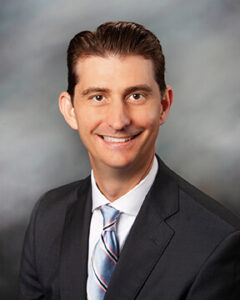Will my tax return be processed quicker this year?
The 2021 tax filing season was the worst in memory. There was a slew of legislation creating Covid-related tax provisions that never existed before. Some of that legislation was passed late in the year leaving the IRS scrambling to adapt. This was very difficult given the work from home mandates applicable to IRS employees.
To make matters worse, automated compliance systems kicked off millions of erroneous inquiries to taxpayers. According to a CNBC article, due to issues related to stimulus checks, 9.4 million “math error” notices went out from the IRS in the first half of 2021. These and other notices generated unnecessary phone calls and replies to the agency.
How bad was it? By virtue of its licensing, our tax team has access to a special IRS phone system just for tax preparers. Still, there were many days when our team was carrying cell phones with them everywhere they went waiting for the IRS to call them back. Members of the general public had it worse. During the first half of 2021, there were 240 million phone calls to the IRS. That’s 16,000 per IRS worker!
During the first half of 2021, there were 240 million phone calls to the IRS. That’s 16,000 per IRS worker!
That was last year. For 2022, there are both signs of concern and some hope.
Concerning is the current substantial back log of unprocessed returns and the number of employees to do the work. The National Taxpayer Advocate found the IRS’s backlog of unprocessed returns has hit the 8.5 million mark, more than eight times the norm. The IRS is only answering 9% of all calls and only 3% of calls regarding individual income tax returns.
Also concerning are the potential errors that may occur regarding the accounting for the Recovery Rebate Credit (aka, stimulus payments) or the advance Child Tax Credit. Any discrepancies around these will almost certainly delay the processing of a return. With different checks coming at different times, these can be tricky to keep tabs on.
On the hopeful side, Congress allocated an additional $1.4 billion to assist IRS in hiring new staff. A coalition of eleven groups representing tax preparers has petitioned the IRS to suspend certain activities until the backlog is addressed. We’ll see if IRS does that and if it helps.
There are things you can do to minimize the potential delays…be organized, timely, accurate and complete with the information needed to file your return.
There are things you can do to minimize the potential delays. First, is to be organized, timely, accurate and complete with the information needed to file your return. If you received Recovery Rebate Credit (“stimulus”) payments, it is crucial that you provide copies of IRS Letter 6475 that reports those payments received in 2021. If you received advance Child Tax Credit payments, it is crucial that you provide copies of IRS Letter 6419 that reports those payments in 2021.
Both Letter 6475 and Letter 6419 were sent in January. If you received stimulus payments in 2021 but do not have Letter 6475, you may get information about the payments here. If you received Child Tax Credit payments in 2021 but do not have Letter 6419, you may get information about the payments here. You must establish your own online account with IRS to access this information. Unfortunately, we cannot retrieve this information for you.
The online account only provides the amounts from the letters under the “Tax Records” section of the site, not the actual letters themselves. Further, the site only lists the information for each person individually. For couples, this means both spouses will need to establish and access their own accounts. Clearly, the IRS has not made this easy and having the letter is the simplest route to getting your return right!
It is also highly recommended that your return be filed electronically and use direct deposit. Despite all the issues at IRS, the agency believes that refunds will go out via direct deposit within 21 days for returns with no issues if electronically filed. They give no estimates otherwise. With a backlog of more than 8 million returns, you may be waiting quite a while. Regardless of how or when you file, as our own Tommy Lucas, CFP(R) EA told CNBC, “It’s going to be a pain…”
Making News…
We continue to help various media outlets provide sound information to their audiences. (Some links may require a subscription to view.)
Mike Salmon, CFP®, Charlie Fitzgerald, CFP®, Derrick Chandler, CFP®, and Tommy Lucas, CFP® participated in an October call-in event for the Orlando Sentinel. Since then, the Sentinel has highlighted several of their responses in its “Ask An Expert” feature.
Derrick explained that it never hurts to ask your credit card company for a lower interest rate. Mike laid out how some retirees do not need to file a tax return. Tommy Lucas, CFP® discussed solar energy tax credits, redeeming U.S. Savings Bonds, and some of the factors that determine if assets are protected from creditors.

DJ Hunt, CFP® penned another column for Rethinking 65 covering issues to address in the years just prior to retirement titled, Clients’ 5-Year Countdown to Retirement is Critical
Dan Moisand,CFP® continues to write for MarketWatch and Florida Today. Click on the links to read some of his published articles:
Looking to reverse a Roth conversion? Proceed with caution
That unspent money in our child’s college savings plan: What can we do with it?
Can I put money from my IRA into a Roth once I’ve satisfied my RMD?
Required minimum distributions: Any way out of taking them and paying the taxes?
Is NIIT the same as the ‘millionaire tax’?
Is a qualified charitable distribution better than a straight donation?
In the News…

In a reflection of the concerns about this year’s tax filing season, CNBC tapped Tommy Lucas, CFP®, EA for commentary in three different stories. The first is about how the advance child tax credit, paused student loan payments and year-end mutual fund payouts may cause higher taxable income for 2021. The second zeroed in on how the child tax credit affects tax refunds, while the third discussed the little known world of tax transcripts.
In addition, Tommy was interviewed by Talia Blake of our local npr affiliate. You can read a synopsis of the conversation or hear the recording on the webiste of 90.7 FM WMFE.
DJ Hunt presented a continuing education program for financial planners through Lorman. The program, titled “What To Do With That ‘Unwanted’ Life Insurance Policy,” discussed the various strategies one might pursue with such a policy. The program covered pros and cons of several options including dropping, modifying, exchanging, selling and donating a policy. (MFT does not sell insurance but our clients can get our help navigating the confusing world of insurance.)
If you are a member of an organization in need of a personal finance speaker, we are happy to talk with your group’s organizers about helping out at no cost.
CNBC also reached out to Charlie Fitzgerald, CFP® for his thoughts on mistakes retirees make with bonds. He reiterated our cautions against taking on more risk to receive more interest, a strong temptation in a low rate environment. He warned that buying long-term bonds or bonds of suspect credit quality aka “high yield” bonds could expose retirees to substantial losses when bonds should represent a stable portion of one’s portfolio.
Things We Found of Note
62% of consumers expect a tax refund (National Retail Federation) and 47% of Americans expect their taxes to go up in the next four years (Nationwide).
42% of retirees say they didn’t consider the issue while 36% are terrified of what taxes will do to their retirement income.
We are not sure what to make of this. According to coupon site Offers.com, 21% of Americans would give up coffee and 19% would give up sugar but only 13% would be willing to show their boss their internet browser history to get out of paying taxes.
5% U.S. GDP spent on healthcare in 1960. (Brookings)
17.7% U.S. GDP spent on healthcare in 2018. (Brookings)

